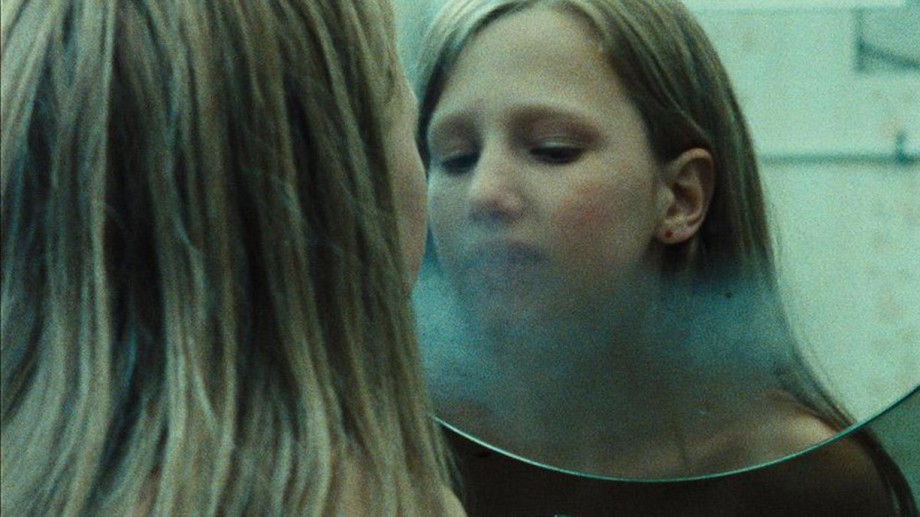
Alice Rohrwacher’s debut feature, Corpo Celeste, is confronted with the challenge facing any work of new Italian cinema—how to live up to the celebrated cinema of the past, while offering a fresh voice to represent the Italy of the present. This naturalistic, often hypnotically quiet film in many ways draws on the neorealist tradition, while articulating a distinctly contemporary portrait of Italian life. The Swiss-born Rohrwacher’s Italy is not the Italy of Fellini, Rossellini, or de Sica, but an Italy as seen through the eyes of a 12-year-old girl struggling to understand the world around her.
Upon moving back to a small town in Southern Italy after spending most of her life in Switzerland, Marta (Yle Vianello) is a stranger in her own country. In the sea of olive-toned skin and dark brown hair, she stands out with her light blonde hair and fair complexion. A physical and emotional outsider, Marta finds herself on the verge of two major milestones in her life—the dawn of puberty, and her first catechism. As Marta struggles with both of these experiences (often intertwined as they are), Rohrwacher crafts a subtly insightful story of adolescence that is also an exploration of the changing role of the Catholic Church in modern Italian life.
Formally the film is often an expression of Marta’s subjectivity, exuding stillness and a certain darkness that seem to reflect Marta’s alienated state of mind, interspersed by cuts that break off without much warning, again conveying Marta’s disjointed impressions of her world (somewhat heavy-handedly on Rohrwacher’s part). With very little dialogue, the film is mostly dependent on Vianello’s performance, marked by the understated intensity and innocence necessary to portray such a thoughtful, sad, and surprisingly defiant young girl.

Throughout the film religious angst mingles with adolescent angst as Marta explores her changing body, which Rohrwacher conflates with images of the body of Christ. (The title of the film translates to “heavenly body.”) The corporeal is important to this film, and of course, it is in a way driven by bodies, given the frequent absence of dialogue.
Affective as Vianello’s performance is, and haunting as Rohrwacher’s treatment of the material is, Corpo Celeste seems ultimately to be about something larger than one girl’s fraught relationship with religion—it is about a nation’s fraught relationship with religion. This portrait of modern Italy is unforgiving in its stark naturalism: the unromanticized spaces of the cramped apartment shared by Marta’s family, the crumbling ruin of a church, and the anonymity of a busy highway. It’s equally upfront about a looming question: what role does the Catholic Church play in contemporary Italian culture? The church that Marta and her family attend faces declining patronage among adults, and the congregation’s younger members, Marta in particular seem to be going through the motions, suggesting a reevaluation of the spiritual roots of the religion. A particular image from the film seems to say it all, when Marta flees her catechism class and runs away, only to be found by the church’s priest by the side of a highway. As he stands by the side of the road, talking on his cell phone while cars zoom by, the memorable tableau evokes a potent sense of disconnect.
Though at times heavy-handed in its imagery and slow-paced, Rohrwacher’s debut feature is remarkably unadorned and touching, putting forth a realistic portrait of modern Italy at a time when the country faces economic hardship as well as cultural changes.



